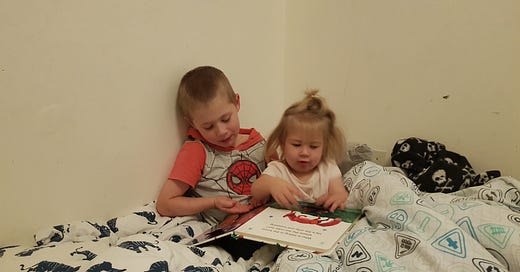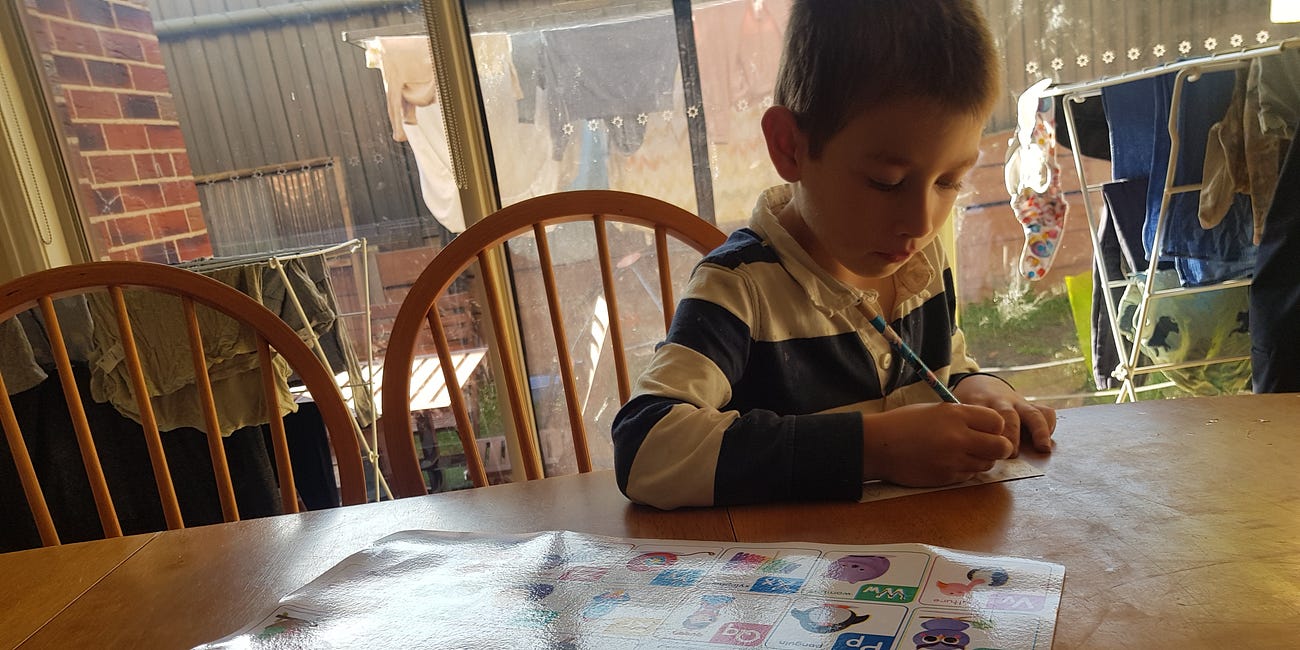As parents, we want to raise our children to be kind, compassionate, responsible, honest, and respectful. We might even have made the time to define some family values, to be more intentional about what morals we really want to impart to our children. We want our children to be good people, to contribute to the world in positive ways.
But how do we make that happen?
I would argue that all parents know that sitting your child for a weekly lecture on values - where you discuss the intellectual importance of kindness (or any other value), the history of how humans have demonstrated kindness, and what the outcomes are for individuals and society at large are when you behave kindly towards others – isn’t the best way to impart these values. Lecturing our children doesn’t feel like the right way to encourage moral behaviour.
Fortunately, I don’t know of any parents who take that route. Yet there are many parents I know of who do try to impart values through explicitly teaching them.
It’s so common to see parents hovering over their child’s social interactions – reminding them to say ‘please’, ‘thank you’, and ‘sorry’ at the right times. I even see some parents who go so far as to script out exactly what their child should say, telling them “Now say ‘May I please have a turn with the ball’”.
While I understand why some parents feel the need to do this (after all, I’ve also been embarrassed by my children’s rudeness at times), values really aren’t taught in this way.
“Like many other values our children get from us, compassion is more likely to be caught than taught.”
Mr Rogers
We can try to teach our children kindness, compassion, responsibility, integrity, and respect. But we’re much more likely to have success in raising kind, compassionate, responsible, honest, and respectful children by allowing them to catch these values from us.
We do this through a holistic approach that combines discussion and reflection, role modelling, and creating and highlighting opportunities for experiential learning. Using kindness as an example, here are some ways we can do that:
Discussion and reflection
- Engage in discussions about what it means to be kind. This sort of discussion works best in informal settings, like on car rides or around the dinner table. You could talk about what it feels like when someone is kind to you, what sort of behaviours could be considered kind, and how you feel when you are kind to others.
- Use books as a springboard. Read a book about kindness (some of the best ones can be found on this list, compiled by Kelly Holmes), and then talk about it together. How did the characters show kindness? How did they feel?
- Reflect on times when you noticed your child behaving kindly. You don’t need to make a big deal about it, lavishly praising them for their kindness. Instead, simply reflect on what you observed. “I noticed you reading a book to your little sister. That was really kind, and I saw that she looked very happy when you did that”.
Role modelling
- Be kind to your children. Allow them to experience the type of kindness you want them to demonstrate. Make it a normal part of your family life, so that kindness is just the way you treat each other.
- Be kind to others spontaneously. Talk politely to those who are serving you – such as retail staff and waiters. Let another car merge in front of you. Open the door for someone. And if your kids ask you why, explain that you’re just being kind.
- Engage in bigger acts of kindness. Mow your neighbour’s lawn or take a meal to someone who just had a baby. You don’t need to make a big deal about it for your children to notice.
Creating and highlighting opportunities for experiential learning
- When you see an opportunity, guide your child towards a kind response. If their little brother is crying, nudge them towards offering him a hug or a toy. If there is a child playing alone at the playground, ask them if they might like to play with that child. However, it’s important not to force them. If they don’t want to, leave it. Pushing them to act kindly if their heart isn’t in it doesn’t teach them anything.
- Invite them to join you in acts of kindness. You could let them know that today you will all be going to visit someone at the nursing home, or that together you will bake cookies for the neighbours. Again, you don’t need to force their interactions. Just being there to watch you being kind is enough.
- Ask them how they can be kind to someone today. Help them plan their own experiences for demonstrating kindness.
Values are not something you can teach in a day. It’s something that grows over a lifetime.
The best way to grow kindness in our children, is to grow it in ourselves.
Beck xx
I'd love to hear your thoughts! What’s your favourite book about kindness? Or an activity you’ve done together to model a family value?
Oh, and before you go
If you enjoyed this article, and want to read more, consider subscribing for free. That way you won't miss a single article, they'll appear right in your email inbox.
But if you can't wait for next week, check out these recent articles which I think you might enjoy:
Our words matter
As a home-educator, I feel as though I’ve learnt more about various teaching philosophies than the average parent. I’ve learnt about Steiner education, experimented with Charlotte Mason, dabbled in unschooling, and reviewed the principles of the Classical method.
It is possible to get kids on board without bribery
There’s one type of statement that I try to avoid when I’m talking with my kids. “If… then” statements. You know the ones I mean. If you eat all your vegetables, then you can have dessert. If you are good at the shops, then I’ll buy you a treat at the checkout.
Or upgrade to paid, and receive my weekend newsletter as well.






Re:
"As parents, we want to raise our children to be kind, compassionate, responsible, honest, and respectful. We might even have made the time to define some family values, to be more intentional about what morals we really want to impart to our children. We want our children to be good people, to contribute to the world in positive ways."
But why do we want these things for them? Because we ourselves believe that this is the path to success and happiness in the real world. Believing that, it makes sense to model these qualities and to recommend them to our children while they are very young and in need of a place to begin, so to speak. But let us remember that what they need most of all is the freedom to choose their own values, as soon as they are able.